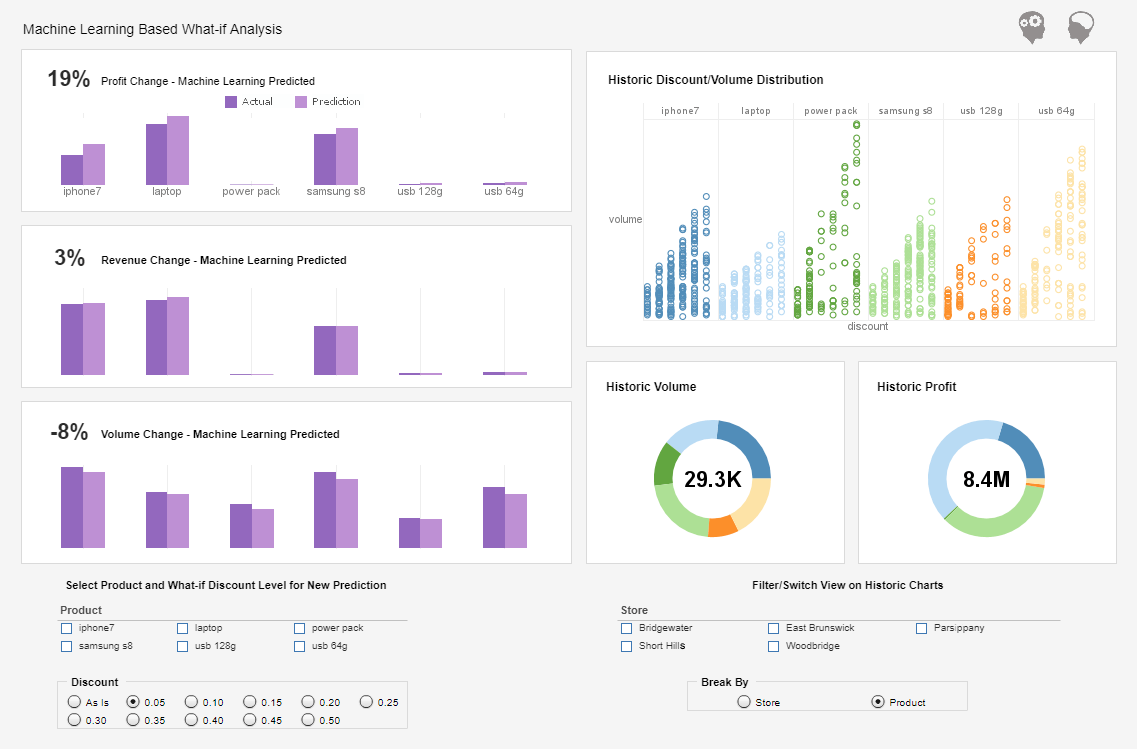InetSoft Webinar: Good Business Analyst Consultants
This is the continuation of the transcript of a Webinar hosted by InetSoft on the topic of "Top Trends for Business Analysts." The speaker is Rick Smith, Senior Business Analyst at InetSoft.
Here’s a comment. If anything I think good business analyst consultants or ones that have been outsourced, maybe they bring their experience and expertise to a client which would benefit the client going forward. I agree. I think you are right. I think they bring a different level of objectivity. I mean there is nothing quite like an outside pair of eyes.
A practitioner of business analysis who is deployed in the client environment all the time, I think they are most appreciative of the fact that I am coming in with a fresh set of eyes, and I am looking at things with almost a certain sense of naïveté. I am looking at it with a fresh set of eyes. So to some extent there is a ton of value. I agree with you.
Is the solution development lifecycle a new standard in the BA world? I don’t think so. This has been a terminology that has been around for a 100 plus years. Gosh, I have been in the business for 22 years, and I know people who have been in it longer. Solution development lifecycle has been around for a long, long, long time.
In fact, I am writing an article today about the challenges of the solution development lifecycle. Can it be better? Is there something more efficient? And some of you out there might say SCRUM. There is our solution development lifecycle, a new modern day version of it.
When I think of the title business systems analyst, I think specification. I think of a finer amount of granularity and detail. However I don’t like doing that. I don’t think we should hang our hat on titles. I think we should hang then on to knowing what we need, what our function is and how we perform, what we need to contribute.
Business Process Management (BPM) Skills
I am just reading through randomly here for another question. Is it going to help the BA to acquire BPM skills where they can model and develop a solution? Absolutely, the more skills you can get the better off. And BPM skills, no question, go get them.
How do you differentiate between the business analyst and geek behind the business panel? Currently I am using the term IT analyst, but it seems generic. There are BA who to report into an IT organization. We all have an inner geek in some way. Again don’t get hung up on the title so much as they would get more in line with the function, and what they are producing so they should report into the IT organization. I have to tell you it’s 50/50 split no matter where you go in the world on how BA’s are distributed throughout companies and organizations. 50% are in IT. 50% are in business and so on and so forth. There is also the PMO where they sit as well. So it’s a tough question. I don’t think that’s ever going to change.
Let’s just grab one more question here, and then we'll get to the top of the hour. Do you have any suggestions for models of BA? Do a little bit of research You can use case models or new case diagrams, and not necessarily primarily focused on IT swim lane diagrams. Flow charts, data flow diagrams, they don’t all necessarily have to point the fingers at IT.
How Have the Skills Required for a Business Analyst Changed from Ten Years Ago To Today?
How the Skills of a Business Analyst Have Changed
Ten years ago, the role of a business analyst was primarily focused on a specific set of core skills. Today, the profession has evolved significantly, incorporating new technologies and methodologies.
Core Skills Then vs. Now
In the past, a business analyst's key skills revolved around requirements gathering, documentation, and communication. The primary tools were word processors and spreadsheet software. The focus was on waterfall methodologies, where a project's requirements were finalized upfront before development began.
Today, the landscape is much different. While those foundational skills remain important, they've been supplemented by a new set of competencies. There's a much greater emphasis on adaptability and a deeper understanding of technology.
The Rise of Data and Technology
One of the most significant changes is the integration of data analytics. A modern business analyst needs to be comfortable with data visualization tools and understand the basics of data analysis. They are often expected to interpret data to inform business decisions and identify new opportunities.
Furthermore, the shift to agile and scrum methodologies has changed how business analysts work. Instead of gathering all requirements at once, they now work in iterative cycles, constantly refining and prioritizing backlogs. This requires strong skills in collaboration, negotiation, and an ability to be comfortable with change.
Essential New Skills
- Data Analytics & Visualization: Using tools like Tableau or Power BI to analyze and present data.
- Agile/Scrum Methodologies: Working in iterative cycles, managing product backlogs, and collaborating with cross-functional teams.
- Technical Proficiency: A basic understanding of APIs, databases, and software development lifecycles.
- Communication & Collaboration: A greater emphasis on daily communication with development teams and stakeholders.
In essence, the modern business analyst has become a more versatile and technically-minded professional, acting as a bridge not just between business and IT, but also between data and strategy.

